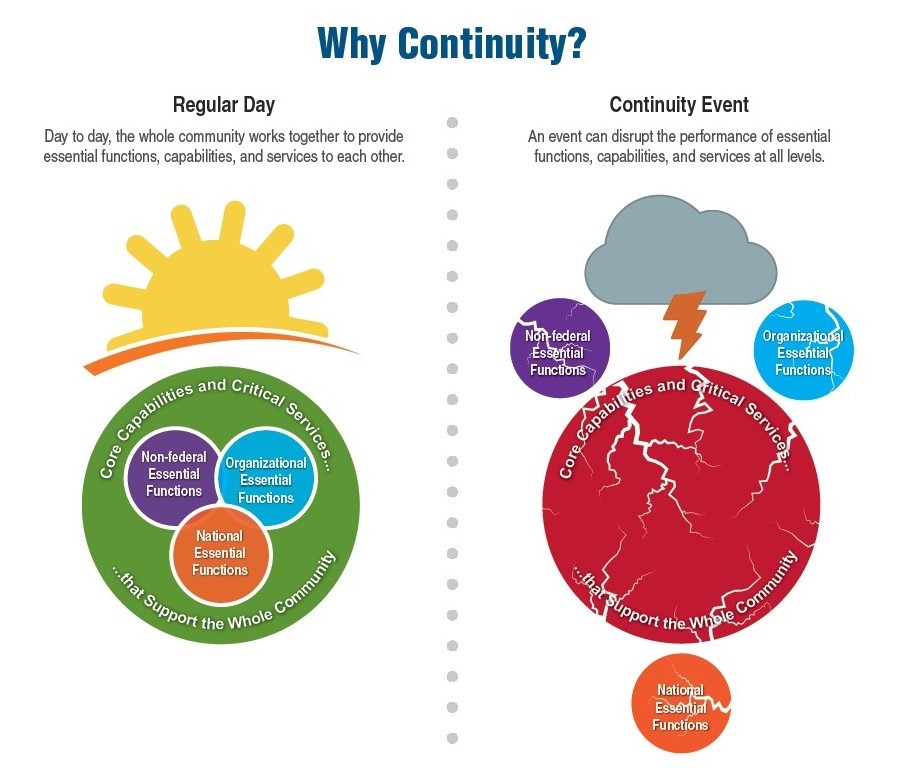Continuity of Operations Plan (COOP)
What is a COOP and Why Do I Need It?
A Continuity of Operations Plan (COOP) is an important component of emergency operations and response planning. COOP helps to ensure businesses can continue to operate in a timely manner after an event occurs that disrupts normal business activities.
A Continuity of Operations Plan is required for all licensed child care providers and for license-exempt providers who are enrolled to receive NH Child Care Scholarship. The NH DHHS Bureau of Child Development and Head Start Collaboration worked with the NH DHHS Child Care Licensing Unit, the NH DHHS Emergency Services Unit and Child Care Aware of NH (CCAoNH) to develop guidance documents to help child care providers prepare their Plan.
How Do I Develop a COOP?
A checklist has been created to guide providers through the major COOP components. Additional documents to support this work include information about insurance considerations and a list of resources that may support programs that experience damage and losses in the event of an emergency/disaster.
The following documents have been created to aid your COOP Planning:
- A COOP Checklist to help programs to develop a plan.
- Sample Delegation of Authority Letter to help programs think about succession planning.
- Sample Contact List to help programs think about who needs to be notified in the event of emergencies that require activation of COOP.
- Insurance Considerations Document to help programs think about what insurance coverage the program has currently.
- Recovery Resources Document to help guide programs on where to look for additional resources following an emergency/disaster.
- Coversheets for each section of COOP to help programs organize their plan.

Source: Continuity Guidance Circular. February 2018. FEMA National Continuity Programs
What if all COOP elements do not apply to my program?
We understand some elements of COOP may not apply to your business. If you are a small child care program or a family child care provider, please plan for as much as possible. Please look carefully at the Essential Records and Database section of the checklist. While you may not be able to prepare for all of the elements in COOP, there are components that will help you think about how you would be able to resume operations in the event of an emergency/disaster. Preparing for these COOP elements may help you recover faster than if you had not completed these sections.
For all programs, COOP can help you organize your business records and create complete contact lists so you will have all the information and important documents you might need in the event of a major or minor business interruption.
Making sure you have reviewed your insurance coverage with your insurance agent is another step that is important in order to protect your property. Your insurance agent may suggest other types of insurance that may benefit you in the event of a business disruption.
If you need additional support or technical assistance in creating or reviewing your plan, please feel free to contact CCAoNH at 1 (855) 393-1731 ext. 2532 or ACROSS NH at (603)-206-6800. In addition, you can contact the Bureau of Child Development and Head Start Collaboration for assistance at (603) 271-8167. If you have questions regarding the Child Care Licensing Rules around COOP, please contact the Child Care Licensing Unit at (603) 271-9025.
Continuity of Operation Plan (COOP) for Child Care Programs: What is it and Why Is It Important Training:
- Online Introduction to COOP
- Previous Webinar Recording: Date: June 10, 2020 Time: 6:30-8:30 PM
- PowerPoint: Continuity of Operation Plan (COOP) for Child Care Programs: What is it and Why Is It Important
- COOP Checklist
- Mitigation Assessment Checklist
- Recovery Resources
- Sample Contact Lists
- Sample Delegation of Authority
*Please note that this Training Kit and PowerPoint are being provided as a courtesy professional development tool and resource for directors and others serving in a leadership capacity. The use of this kit is for training purposes. Any individual utilizing this kit is responsible for ensuring that the training provided satisfies licensing requirements and that they satisfy CCLU requirements as a trainer. This kit cannot be used for profit and is a meant to be used as designed. When utilizing this kit, the trainer needs to note to all participants that this training was created in part or whole by Child Care Aware of NH through funds provided by the Department of Health and Human Services, Division of Economic and Housing Stability and the Bureau of Child Development and Head Start Collaboration.
